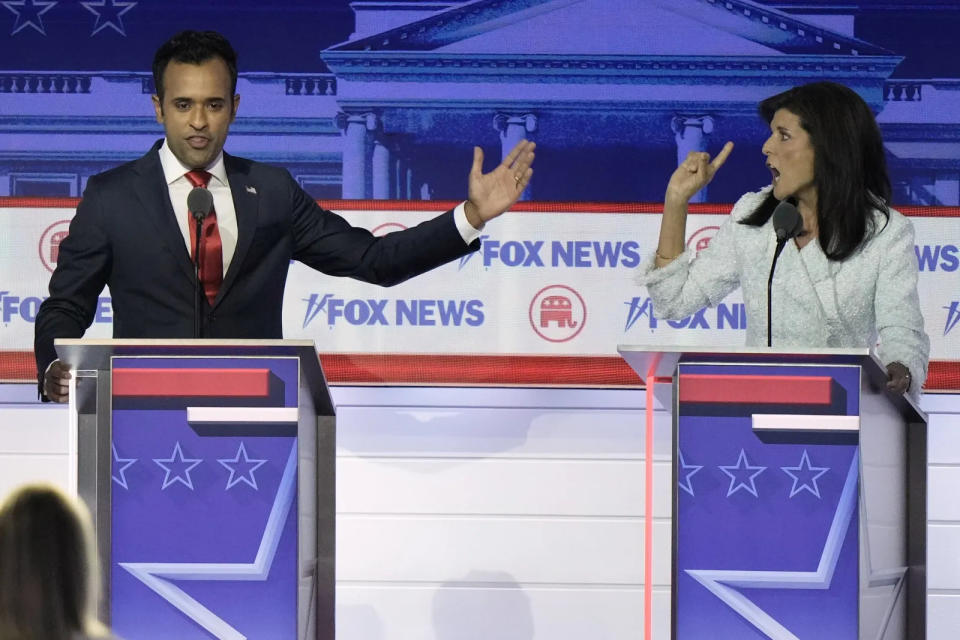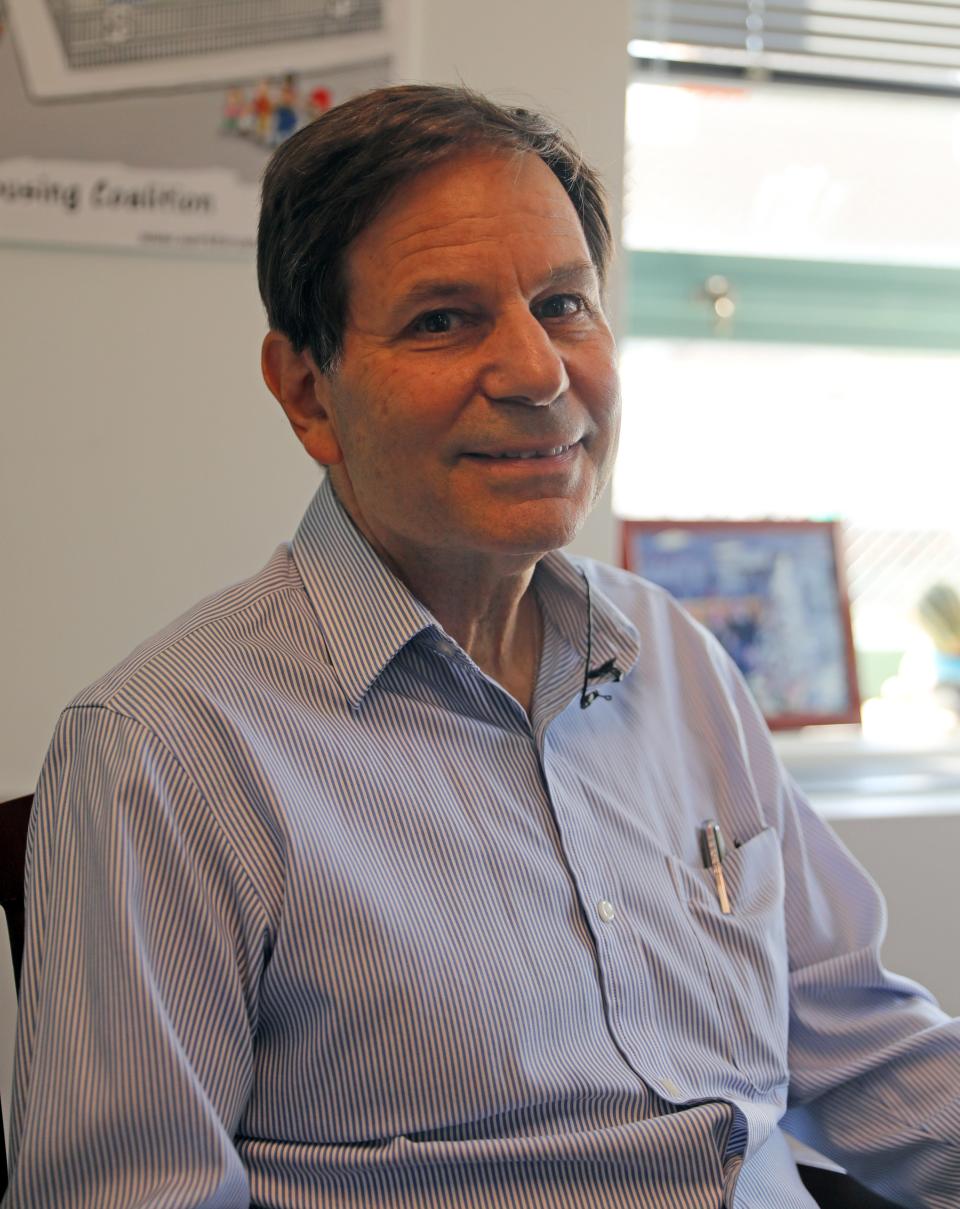The quest for 'truth' in American politics is killing us. Is the post-truth era?
Instead of “Make America Great Again,” the rising star of the Republican Party, Vivek Ramaswamy, has taken “Truth” as his slogan, with ten statements of which these are the first three:
1. God is real. 2. There are two genders. 3. Human flourishing requires fossil fuels…
Truth is playing an outsized role in today’s politics, and it is tearing us apart. Everyone, it seems has their own truth, and cannot admit any validity on the other side. Bombarded with so many conflicting “truths,” we naturally default to echo chambers, safe spaces that exclude contradictory information and confirm our biases. While making us feel better, the results are polarizing and undermine civil society.

The post truth era
The “post truth era” is a term coined in 2004 by Ralph Keyes, who found that lies were becoming commonplace and accepted in the public square. Post truth is defined as, “Relating to or denoting circumstances in which objective facts are less influential in shaping public opinion than appeals to emotion and personal belief.” By 2016, Oxford Dictionaries listed “post-truth” as the international word of the year. Writing in Slate that same year, Sam Kriss showed that post-truth is nothing new and has been around for centuries. Plato complained about lies and emotion spoiling the politics of 400 BC.
The real problem is not 'truth versus lies'
If you ask the average person the opposite of “truth,” he would answer, “lies or falsehood.” An acclaimed book released in 2022 by two clinical psychologists called this a flawed shortcut of the mind called, “either or thinking” — the idea that if one proposition is true, the other must be false.
Clinical Psychologists Wendy Smith and Marianne Lewis, authors of “Both/And Thinking: Embracing Creative Tensions to Solve Your Toughest Problems, use the 2003 Iraq War as a case in point. The United States government was convinced, erroneously as it turned out, that Iraq possessed weapons of mass destruction. When they could not be found, officials erroneously assumed they must be hidden, and started a war.
Great questions contain great paradoxes
In their research, Dr. Smith and Dr. Lewis found that the great questions we face in personal and political life are actually paradoxes, containing “contradictory, yet interdependent elements that exist simultaneously and persist over time.”
Conservatives, for example, excoriate liberal governments in cities like San Francisco for failure to enforce order in society, allowing streets to turn into drug dens and lavatories for the homeless. Liberals say that using police to address social inequality or mental illness is cruel and ineffective, resulting in mass incarceration. They both use facts and figures to argue different “truths.”
The solutions to our major problems in life and politics, according to the authors, require a change “from thinking about truth as a singular issue of right versus wrong to recognizing that multiple truths can coexist.”
Their book presents tools for integrating competing demands through dialogue and argument that produce a better alternative than choosing one side or the other. They call these results, “mules,” referring to what happens when horses mate with donkeys. Mules are faster than donkeys and more intelligent than horses.
These techniques, applied to companies like Lego, Unilever and IBM, saved them from financial downfall. In the case of IBM, it was the tension between funding short-term and long-term product goals, investing in existing products or innovation.
“Effective senior teams,” Dr. Smith wrote, “could frequently oscillate between supporting the existing product and the innovation, being consistently inconsistent.”
Accepting paradoxes
The book relates a number of prominent thinkers who recognized the power of paradox in determining truth, from the ancient Chinese philosopher Lao Tzu, to Heraclitus in Greece, to President Barack Obama, who had to reconcile the fact that “the free market system creates enormous efficiencies and wealth,” while “there are parts of the economy that don’t work and are unjust and get people frustrated and angry. ... Both things are true and you then still have to make a decision.”
Embracing a “paradox mindset,” considering opposing beliefs, entails the need to accept contradiction, and there is a parallel in scientific research. Nobel Prize-winning economist Daniel Kahneman challenged the accepted protocol of one scientist offering a theory and then others attacking it. He called the “critique-reply-rejoinder” technique “angry science,” and co-authored papers with economists who vehemently disagreed with him. He coined the term, adversarial collaboration, where scientists “commit themselves to work together towards a joint truth, either by experimentation or by discussion.” While minds were seldom changed, “The outcome was vastly better for everybody than the alternative, and we ended up on civil terms.”
So, how do we introduce the paradox system and adversarial collaboration into our politics?
Ancient Jewish wisdom
It turns out that Judaism explicitly embraced the reality of paradox over a thousand years ago with the code of Jewish Law, called the halakha. The Talmud consists of differing interpretations of Jewish Law and the Torah (Old Testament) from generations of rabbis from the 3rd to 8th centuries CE.
One of the most striking among them is what Wendy Smith of Both/And Thinking said inspired her interest in paradoxes. In a podcast, Dr. Smith talked about her study of the Talmud at a yeshiva in Israel, where she discovered the commentary known as “Elu v’Elu (These and Those). The teaching says that two competing yeshivas (Jewish schools) around the first century had a disagreement in which they reached contradictory conclusions about what was permitted and not permitted based on the same holy texts:
“For three years Beit Shammai and Beit Hillel disagreed. These said: The halakha is in accordance with our opinion, and those said: The halakha is in accordance with our opinion. Ultimately, a Divine Voice emerged and proclaimed: ‘Elu v Elu, Divrai Elochim Chaim.’ Both these and those are the words of the living God.”
Thus, Judaism embraced the concept of paradoxes, that two opposing truths may coexist, and the ideal result would be to incorporate both truths to achieve a “greater truth.”
Jon Meacham: Forgiveness is not about forgetting: How America can learn from — and must honor — history
Alexander Roberts: Putin, Prigozhin and the ancient quest for the glory of war
Living with discomfort
The tractate Elu v’Elu includes a clue as to how we may live with the discomfort of contradiction and paradoxes. It reveals a value higher than truth. The text goes on to say the words of Hillel are to be preferred over Shammai, specifically because he was more tolerant and kind. Thus, peace in Jewish Law is recognized as a value higher than truth.
Hillel famously said, "That which is hateful unto you, do not do to your neighbor. This is the whole of the Torah; the rest is commentary.”
While facts may be distinguished from falsehoods, truth involves subjective perception. For a person, a business or a society to thrive, we must allow for multiple truths without threat or violence, in order to find the greater truth.
Alexander Roberts is a former New York City television news reporter and founder and CEO emeritus of the nonprofit Community Housing Innovations.

This article originally appeared on NorthJersey.com: Debate about truth in politics hurts America

